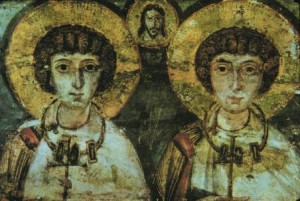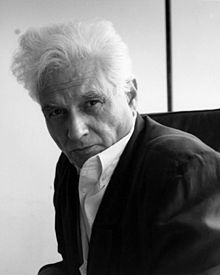Nineteenth Century German philosopher Friedrich Nietzsche is renowned by atheists everywhere for his (usually taken out of context) axiom of the era, “God is dead.” This misuse of this quote can perhaps in some way shed light on what I mean when I say that we have anything to learn about Heaven, the place where we live with God for eternity, from the man who said that “God is dead.” When Nietzsche proclaims that “God is dead,” he does not do so in the way that the quote out of context may make it seem, that is to say, it does not make a dogmatic declaration on the state of affairs in reality. Instead a statement on the ontological situation of a deity, this quote;
God is dead. God remains dead. And we have killed him. Yet his shadow still looms. How shall we comfort ourselves, the murderers of all murderers? What was holiest and mightiest of all that the world has yet owned has bled to death under our knives: who will wipe this blood off us? What water is there for us to clean ourselves? What festivals of atonement, what sacred games shall we have to invent? Is not the greatness of this deed too great for us? Must we ourselves not become gods simply to appear worthy of it? –The Gay Science, Section 125
is a condemnation, and an imperative. It should be noted that this is bizarre imperative, for it is one that is at the same moment a universal, and a completely individual imperative to take absolute responsibility for your actions and really understand what you’re doing in your life.
With this understanding of the mustachioed madman of the Alps in mind, we move on to his concept of the “Eternal Return.” The concept that history would repeat itself is not a new one, by any stretch, but this is not the totality of Nietzsche’s claim. As J. P. Stern reflects on this daunting topic, by anyone’s standards, he reveals something of very importance; that the Eternal Return, much like the death of God, is not simply a statement the ontological status of something, but an imperative, a dictate for judging actions.
It would make sense that the man who attempted to start a quasi-religious movement entitled “The Re-valuation of all Values” would have a vested interest in a dictate for action. But what does the fact that stuff happens and will continue to happen, in much the same way, have to do with moral dictates? Well, first of all, it should be noted that this is in no way a moral dictate, instead it is an amoral dictate of action, that is to say, not a question of what you should or shouldn’t do, but a dictate that you should consider what you’re doing. This would seem simple enough, until one considers the totality of the Eternal Return. For Nietzsche’s description of it, decisions made with a consciousness of the Eternal Return are ones made with a knowledge that they will have to be repeated, not just once or twice, but ad infinitum, that is forever. Now, this does not mean that every time I eat a bowl of cereal I have to do it with full understanding that by doing this I will forever be condemned to eating cereal; rather it means that whenever I do something that may, in retrospect, be said to define me, I must be, in order to be truly myself, willing to do it ad infinitum.
http://www.youtube.com/watch?v=H-Q7b-vHY3QBut, what does this have to do with Heaven? Allow me an anecdote to explain.
Byzantine liturgies are notoriously long. A visitor once approached a priest after Divine Liturgy and asked him, “Father, I love your church, but the Liturgy was so long. I don’t know if I could belong to a Byzantine parish.” To which he quickly responded “Well, then you ought to go to Hell, because you aren’t going to enjoy Heaven all that much.” Understandably she was shocked. But let us consider Nietzsche’s Eternal Return. It’s easy to say “I want to go to Heaven” when one believes that the only other option is to go to Hell (eternal misery or eternal happiness? All too similar to “cake or death” (thanks Church of England)). I believe that there are only these two options, but people all too often forget what it means to accept the option that seems so simple, of course you want cake… Heaven, but one truly has to consider, in the actions of life, if that’s really what one wants.
Eternity is the absolute of Eternal Return. Heaven is a constant prayer and much as the Eternal Return is the continuation of a man’s action of prayer ad infinitum, Christianity, which is centered on this Kingdom of God, is the continuation of prayer. St. Paul directs us to “pray constantly and without ceasing,” and if we truly want Heaven, then this is all we can do. We cannot simply go to Mass on Sundays begrudgingly, and we can’t just live as if there was no God and expect a reward for our “good enough” behavior. If we truly want Heaven, then we must direct ourselves to it, with the knowledge that it will be our eternity.











